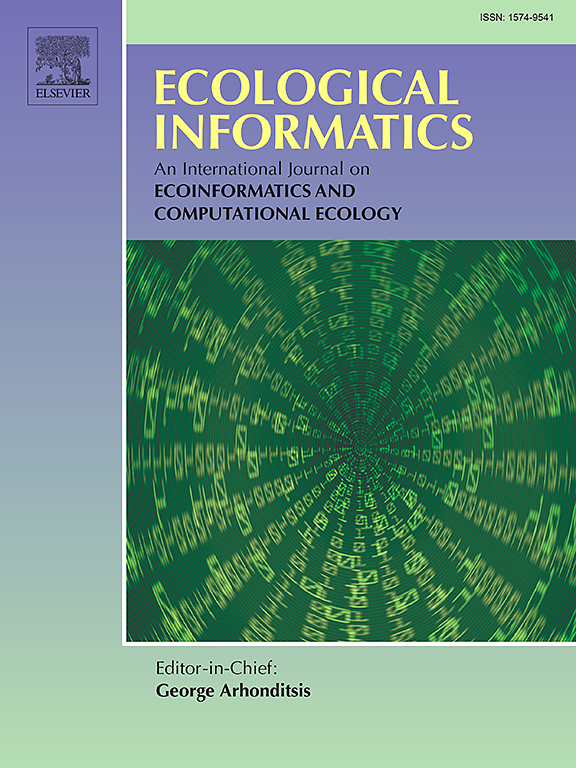Optimizing cocoa biomass density through integrated irrigation and drainage management under water stress: A linear programming approach
IF 7.3
2区 环境科学与生态学
Q1 ECOLOGY
引用次数: 0
Abstract
This study presents a novel linear programming model that combines crop growth and hydrological dynamics to optimize irrigation and drainage schedules, enhancing cocoa biomass density under variable water stress conditions. Using data from the NASA POWER database and incorporating detailed climate, soil, and crop management variables specific to San Vicente del Chucurí, Colombia, the model evaluated 19,980 environmental and policy scenarios to test its effectiveness. The results indicate that targeted management of irrigation and drainage frequencies can substantially improve cocoa yield by adapting to fluctuating environmental conditions. This model provides key insights into the optimal timing and frequency of water applications, critical for sustaining crop health and productivity in the face of climate variability. These findings hold significant implications for sustainable agricultural practices, offering a practical tool for farmers and policymakers to increase yield while conserving water resources. Future research will focus on enhancing this model through real-time climate data integration and exploring its potential application to diverse crops, further advancing sustainable resource management in agriculture.
水分胁迫下通过综合灌排管理优化可可生物量密度:线性规划方法
本研究提出了一种新的线性规划模型,结合作物生长和水文动态来优化灌溉和排水计划,在可变水分胁迫条件下提高可可生物量密度。利用NASA POWER数据库中的数据,结合哥伦比亚圣维森特Chucurí具体的气候、土壤和作物管理变量,该模型评估了19980个环境和政策情景,以测试其有效性。结果表明,有针对性地管理灌溉和排水频率可以通过适应波动的环境条件大幅提高可可产量。该模型提供了对最佳用水时间和频率的关键见解,这对于在气候变化的情况下维持作物健康和生产力至关重要。这些发现对可持续农业实践具有重要意义,为农民和政策制定者提供了在节约水资源的同时提高产量的实用工具。未来的研究将集中于通过实时气候数据整合来增强该模型,并探索其在多种作物上的应用潜力,进一步推进农业资源的可持续管理。
本文章由计算机程序翻译,如有差异,请以英文原文为准。
求助全文
约1分钟内获得全文
求助全文
来源期刊

Ecological Informatics
环境科学-生态学
CiteScore
8.30
自引率
11.80%
发文量
346
审稿时长
46 days
期刊介绍:
The journal Ecological Informatics is devoted to the publication of high quality, peer-reviewed articles on all aspects of computational ecology, data science and biogeography. The scope of the journal takes into account the data-intensive nature of ecology, the growing capacity of information technology to access, harness and leverage complex data as well as the critical need for informing sustainable management in view of global environmental and climate change.
The nature of the journal is interdisciplinary at the crossover between ecology and informatics. It focuses on novel concepts and techniques for image- and genome-based monitoring and interpretation, sensor- and multimedia-based data acquisition, internet-based data archiving and sharing, data assimilation, modelling and prediction of ecological data.
 求助内容:
求助内容: 应助结果提醒方式:
应助结果提醒方式:


